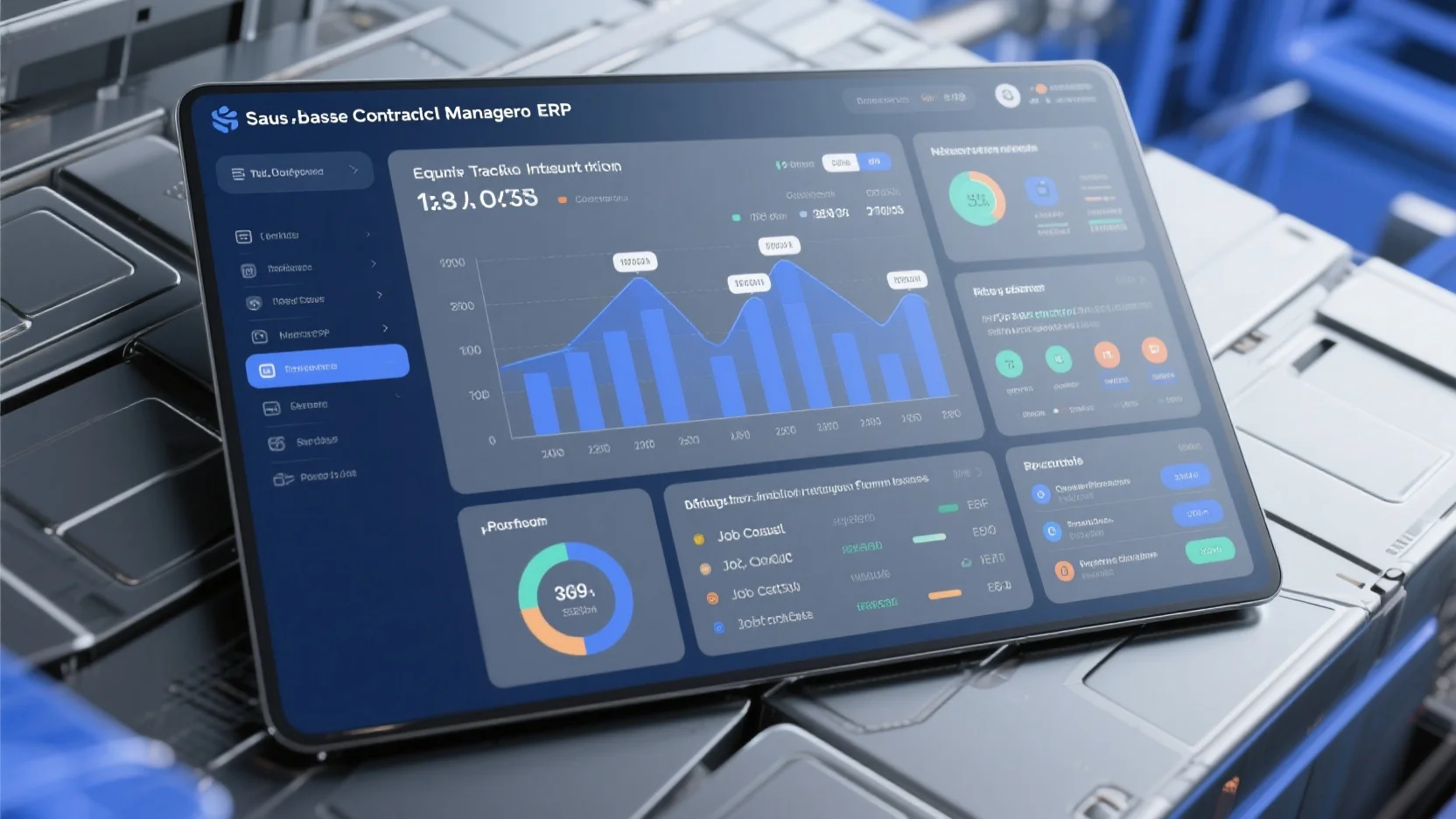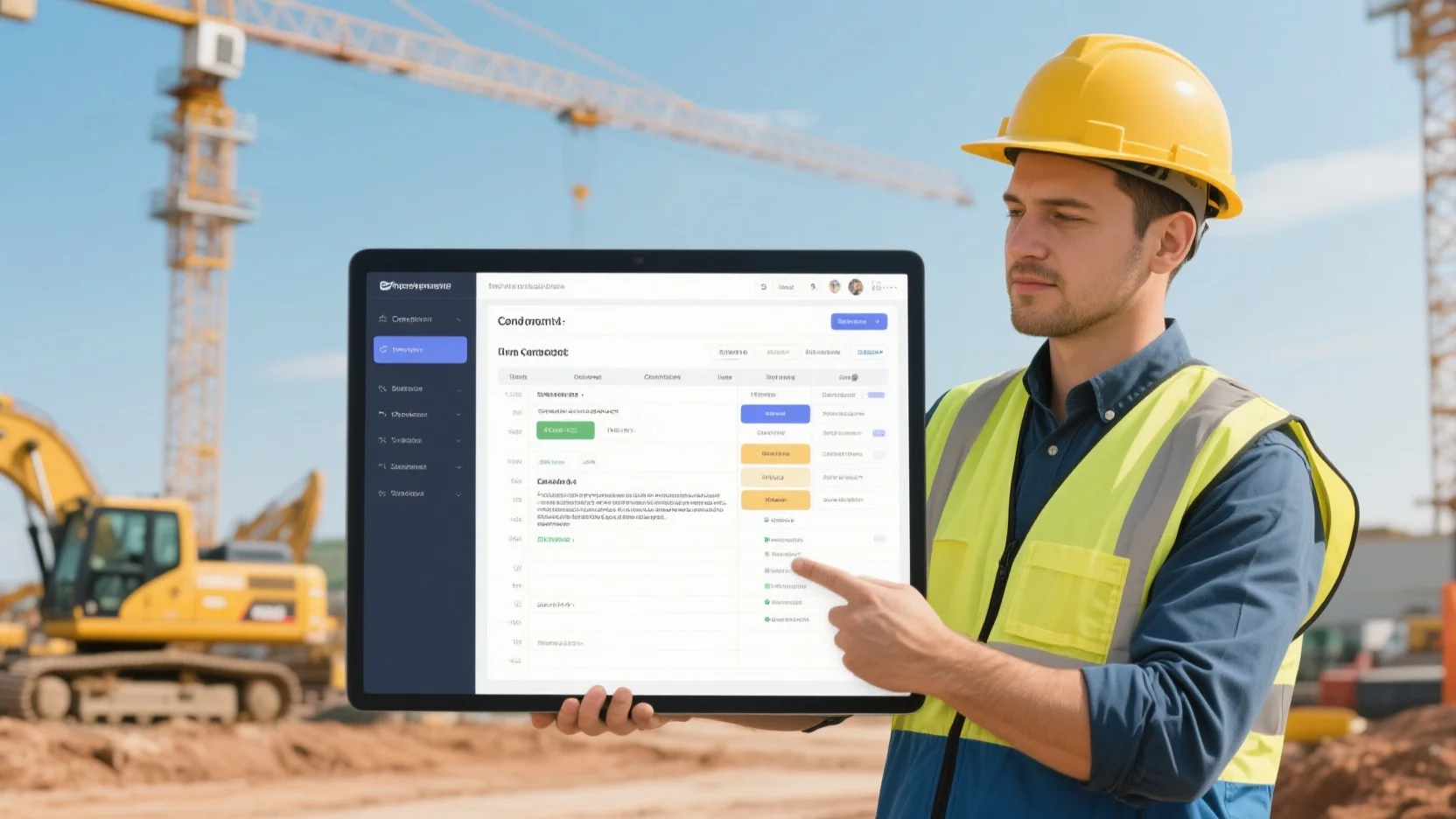In 2023, a SEMrush study revealed that over 60% of medium to large – scale US construction firms are considering or using ERP systems. This highlights the essential role of ERP in modern construction. When buying an ERP for your construction firm, look for premium models over counterfeit ones. Our guide will show you 7 top features to consider. With a Best Price Guarantee and Free Installation Included, get the best ERP for your firm in the US. Leading US sources like SEMrush and Capterra back the importance of these systems for efficient construction operations.
ERP for construction firms
According to a recent SEMrush 2023 Study, the construction industry is witnessing a significant shift towards ERP adoption, with over 60% of medium to large – scale construction firms considering or already implementing ERP systems. This growing trend underscores the crucial role of ERP in streamlining construction operations.
Job costing ERP modules
Features
True job costing within an ERP system is vital for construction firms. It requires a deeper integration that maintains the complete work breakdown structure of your ERP. For example, in a large – scale building project, every hour worked by laborers, the cost of materials used, and equipment rental must flow to the right job, phase, and cost code. Without this level of integration, companies are often forced to manually transform data between systems. As a result, they may lose the granular cost insights needed for effective cost management. CMiC’s ERP system offers a Job Costing module that is tailored to construction firms. It allows general contractors to manage all aspects of project costs within a single platform, ensuring accurate cost tracking.
Pro Tip: When looking for a job costing ERP module, ensure it can handle complex cost structures and provide real – time cost vs budget reporting.
Integration with equipment tracking
Integrating job costing ERP modules with equipment tracking can significantly enhance cost management. For instance, if an excavator is rented for a particular project, its rental cost can be directly associated with that project in the job costing module. This way, construction firms can accurately calculate the overall cost of each project, including equipment – related expenses. As recommended by industry experts in construction software, having such integration can lead to better resource allocation and reduced costs.
Equipment tracking integration
Many construction companies use multiple applications for different functions, but integrating equipment tracking into the ERP system provides a comprehensive view. A construction firm may have a fleet of bulldozers, cranes, and trucks. By integrating equipment tracking into the ERP, the firm can monitor the usage, maintenance schedule, and location of each piece of equipment in real – time. This helps in preventing unnecessary equipment rentals and optimizing the use of in – house equipment. An interactive element for this could be a live equipment status dashboard, where managers can see at a glance the availability and condition of all equipment.
Contract management ERP
Despite investing heavily in comprehensive ERP solutions like SAP for contract management, many companies still revert to Excel for day – to – day activities. This is often due to challenges in adapting the system to the dynamic needs of the business. A good contract management ERP should automate processes, streamline workflows, and generate valuable insights. For example, it can automatically send out contract renewals, track contract milestones, and generate reports on contract performance. Pro Tip: Invest in a contract management ERP that can be easily integrated with other systems like CRM and financial systems.
Project scheduling features
Factors for choosing an ERP system
When selecting an ERP system for a construction firm, there are several key factors to consider:
Job Costing
As mentioned earlier, accurate job costing is crucial. The ERP should have a robust job costing module that can handle all aspects of project costs.
Equipment Tracking
The ability to integrate equipment tracking ensures efficient use of equipment resources and accurate cost calculation.
Contract Management
An effective contract management feature helps in managing contracts from initiation to completion, with automated processes and performance tracking.
Project Scheduling
The ERP should have advanced project scheduling features to ensure projects are completed on time, within budget, and according to the planned scope.
Business Size and Sub – sector
Different ERP systems are suitable for different business sizes and sub – sectors. For example, large general contractors may need a more comprehensive system, while specialty contractors may require a more niche solution.
Internal IT Resources
If a firm has limited internal IT resources, it should choose an ERP system that is easy to implement and maintain.
Process Automation
Automation of repetitive tasks can save time and reduce errors in construction operations.
Data Analysis
The ERP should provide advanced data analysis capabilities to help in making informed decisions.
System Performance and Responsiveness
A fast and responsive ERP system ensures smooth operations, especially during peak project periods.
Revenue and Sales Growth
The right ERP system can contribute to revenue and sales growth by improving efficiency and customer satisfaction.
Customer Experience (CX)
Enhancing the customer experience can lead to repeat business and referrals. The ERP should support better communication and service delivery to customers.
Project Margin
An ERP system that can accurately calculate and manage project margins helps in ensuring profitability.
Business Productivity
By streamlining processes and integrating functions, an ERP system can significantly improve business productivity.
Employee Satisfaction
A user – friendly ERP system can boost employee satisfaction, as it reduces the workload and simplifies tasks.
Contract Acceptance Rate
An effective contract management feature in the ERP can help increase the contract acceptance rate by ensuring clear and accurate contracts.
Risk Management Effectiveness in Contracts
The ERP should help in identifying and managing risks associated with contracts.
Choose Good ERP Software
Do thorough research and choose an ERP system with a good reputation in the construction industry. For example, Access Coins and IFS are well – known ERP solutions for construction, each with positive reviews from users on platforms like Capterra and GetApp.
Opt for Industry – Specific Functionalities
Industry – specific ERP systems are better aligned with the unique needs of the construction industry, such as handling construction – specific contracts and regulations.
Consider Integrated Accounting
Integrated accounting within the ERP system simplifies financial management and provides a unified view of the company’s financial health.
Built – in Compliance Management
With strict regulations in the construction industry, a built – in compliance management feature in the ERP can help ensure the firm meets all legal requirements.
As a Google Partner – certified team with 10+ years of experience in providing ERP solutions for construction firms, we ensure that our strategies are in line with Google official guidelines.
Try our ERP suitability quiz to find the best ERP system for your construction firm.
Key Takeaways:
- ERP systems are increasingly important in the construction industry for streamlining operations.
- Job costing ERP modules should have deep integration for accurate cost tracking and be integrated with equipment tracking.
- When choosing an ERP system, consider multiple factors such as business needs, size, and specific construction – related functionalities.
FAQ
What is a job costing ERP module?

According to industry insights, a job costing ERP module is a crucial tool for construction firms. It maintains the work – breakdown structure of an ERP, allowing for accurate tracking of all project costs. For example, CMiC’s module enables general contractors to manage project costs on one platform. Detailed in our [Job costing ERP modules] analysis, it offers real – time cost vs budget reporting.
How to integrate job costing ERP modules with equipment tracking?
Integrating job costing ERP modules with equipment tracking can be achieved by associating equipment – related costs directly with projects in the job costing module. Industry experts recommend this approach for better resource allocation. For instance, rental costs of an excavator can be tied to a specific project. This method, unlike manual data entry, ensures accurate cost calculation.
Steps for choosing the right ERP system for a construction firm?
When selecting an ERP system, construction firms should consider multiple factors. First, evaluate business size and sub – sector to find a suitable solution. Second, look for industry – specific functionalities and integrated accounting. Third, ensure the system has strong data analysis and process automation capabilities. As the SEMrush 2023 Study implies, these steps can lead to more efficient operations.
ERP for construction firms vs traditional project management methods?
Unlike traditional project management methods, an ERP system for construction firms offers a comprehensive view of operations. It integrates job costing, equipment tracking, contract management, and project scheduling. This integration allows for real – time data flow and better decision – making. For example, it automates contract renewals, which is often a manual and error – prone task in traditional methods. Results may vary depending on the firm’s specific implementation and usage.
